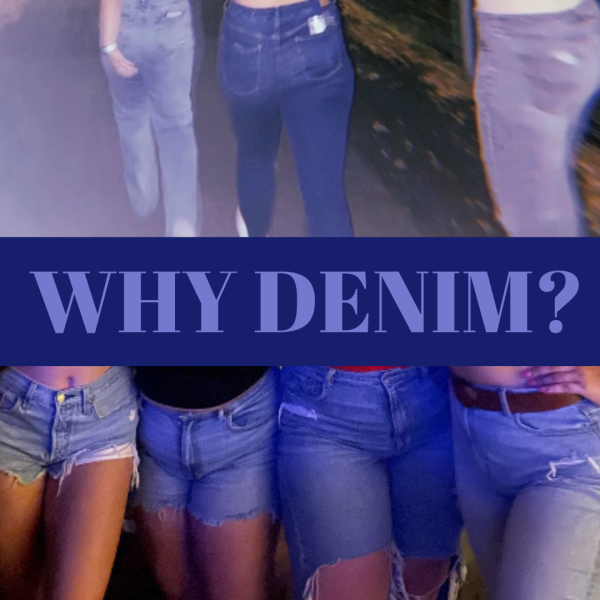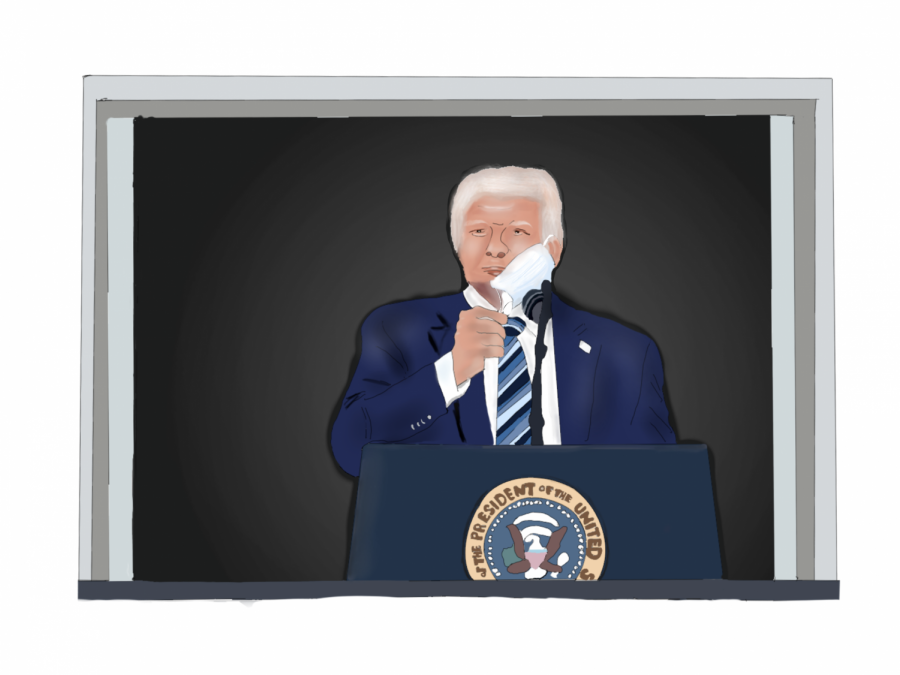What does it mean for the election and country now that Trump has Coronavirus?
Graphic made by Hana Beaty
This past Friday, news of President Donald Trump contracting the dreaded coronavirus shocked the nation as he was admitted to Walter Reed National Military Medical Center. The president, who for months had downplayed the illness, was suddenly faced with a conundrum: how to continue playing it down while also facing potentially life threatening symptoms.
According to Trump’s doctors, the president several times had high fevers and required supplemental oxygen twice, a common issue for patients who experience lung issues due to the virus. On Friday he drove past his supporters who had lined up outside the hospital, attempting to give them hope while at the same time putting the secret service agents in his vehicle at risk.
While Trump is now back at the White House as of today, make no mistake, he still very much has COVID and still has the ability to spread it to those around him, regardless if he or his doctor proclaim that he has no symptoms.
What does this mean for his presidential campaign? It certainly does not help that a president who already is trailing in the polls catches COVID, a disease he has time and time again downplayed. We can see his last-ditch efforts of downplaying the illness through his tweets and his actions over the weekend, such as his ride to wave at supporters which put several secret service agents at risk by being in close proximity with him.
When the president arrived at the White House today, he stood on the Truman balcony and removed his mask, despite still having the virus, for a photo opportunity. It is clear that the president is doing the best to show the public that the virus is not a big deal—despite him getting world class treatment that most Americans do not have access to.
“Don’t be afraid of COVID,” Trump tweeted. “Don’t let it dominate your life. We have developed, under the Trump Administration, some really great drugs & knowledge. I feel better than I did 20 years ago!”
It is clear that he fully intends to keep up the image that COVID-19 is not a threat. The issue with this is that his supporters, many of whom already do not believe in the threat of the illness, will likely take this as an example of the virus being a hoax or not a threat, a dangerous mindset for someone in a country that has lost over 200,000 lives to the virus.
Jack Lewis can be reached at [email protected] or on Twitter @JackAttack722

















